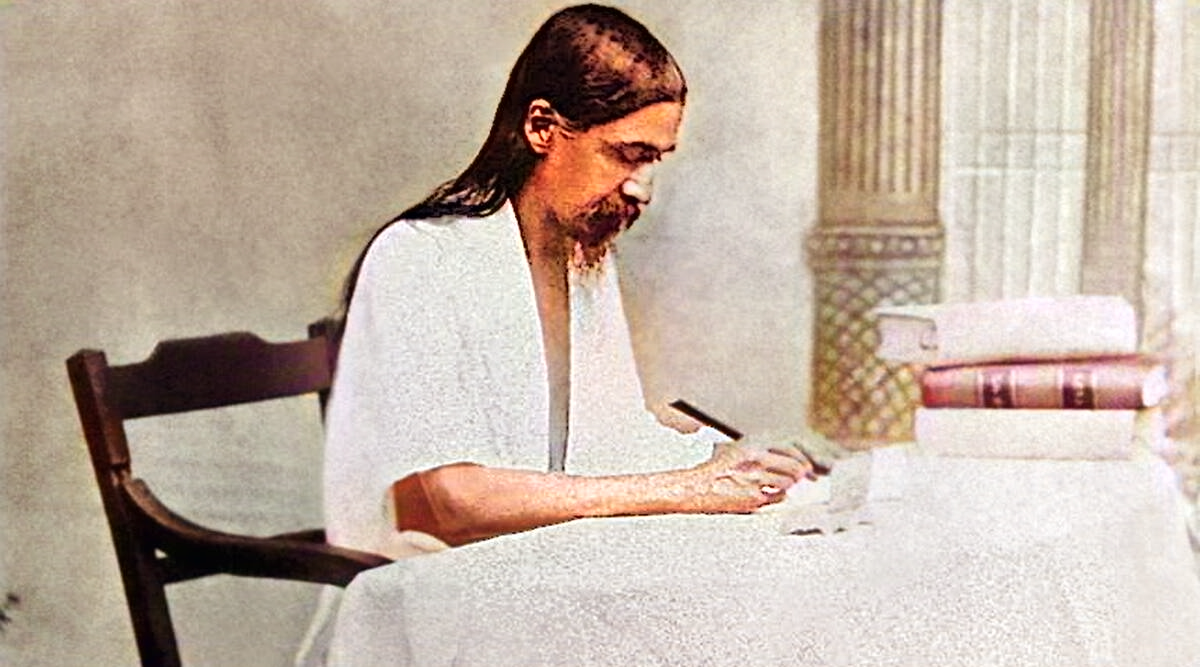Sri Aurobindo Ghosh's Educational Philosophy: An Integral Approach to Learning

Introduction
Sri Aurobindo Ghosh, born in 1872, was not only a pivotal figure in India's struggle for independence but also a profound philosopher, yogi, and educational thinker. His educational philosophy, known as "Integral Education," is deeply entwined with his broader spiritual and evolutionary vision for humanity. Aurobindo founded an ashram in Pondicherry, where he developed and practiced his educational ideas, which aimed at the holistic development of the individual, encompassing physical, mental, vital (emotional), psychic, and spiritual dimensions.
Principles of Aurobindo's Educational Thought
- Integral Education:
- Holistic Development: Aurobindo’s education was about nurturing all aspects of the human being—physical, mental, vital, and spiritual. He believed that education should not just inform but transform, leading to the full realization of one's potential.
- Five Aspects of Being: He categorized human development into five aspects:
- Physical Education: For the development of the body.
- Vital Education: Training the senses and character.
- Mental Education: Cultivating the intellect, including observation, concentration, and memory.
- Psychic Education: Developing the inner being or soul, which leads to true individuality and empathy.
- Spiritual Education: Aiming at the union with the Divine or the highest consciousness.
- Facilitative Learning Environment:
- Freedom and Creativity: Aurobindo advocated for an environment where students could freely express themselves, encouraging creativity, curiosity, and self-discovery rather than rote learning.
- Individualized Learning: Recognizing that each child has unique abilities and interests, his philosophy supported tailored education paths to foster personal growth.
- The Role of the Teacher:
- Guide, not Instructor: Teachers in Aurobindo's system are facilitators of learning, helping students to unfold their inner capabilities rather than imposing knowledge.
- Spiritual Mentorship: Educators should also be spiritual guides, aiding in the student's inner growth and aligning with the ashram's spiritual ethos.
- Curriculum and Methodology:
- Interdisciplinary Learning: Aurobindo envisioned a curriculum that did not compartmentalize knowledge but saw subjects in relation to each other, reflecting the unity of life.
- Experiential Learning: Education through direct experience was emphasized, with learning by doing, observing nature, and engaging in real-world problem-solving.
- Mother-Tongue Education: He believed that primary education should be in the mother tongue to ensure a deep understanding and connection with one's culture.
- Education for Humanity's Evolution:
- Spiritual Evolution: Aurobindo saw education as part of the larger evolutionary process of humanity, where education should lead to the emergence of a higher consciousness or a "Supermind."
- Global and Universal Values: His vision included fostering values like unity, peace, and a sense of global citizenship, preparing students not just for personal success but for contributing to human progress.
Implementation at Sri Aurobindo Ashram
- Sri Aurobindo International Centre of Education: Here, his educational ideas were put into practice, with a focus on creating an atmosphere where learning is a joyful, self-directed journey rather than a forced endeavor.
- Auroville: An experimental township founded in 1968, based on his vision, where education is seen as a lifelong process integrated with living and community development.
Influence and Legacy
- Global Educational Impact: His ideas have influenced alternative and holistic education movements worldwide, emphasizing the integration of spiritual and moral dimensions into learning.
- Indian Education System: While not universally adopted, his philosophy has inspired educational reforms in India, particularly in the areas of value education and integrated learning.
- Modern Resonance: Aurobindo's educational thoughts resonate with contemporary educational trends towards personalized, experiential, and value-based education.
Challenges in Adoption
- Practical Implementation: The holistic nature of his educational model can be challenging to implement within the constraints of conventional education systems focused on standardized outcomes.
- Teacher Training: Preparing educators to embody the role of spiritual guides as well as academic instructors requires a transformative approach to teacher education.
- Cultural Adaptation: Adapting his spiritual and philosophical approach to diverse cultural contexts while maintaining its essence.
Conclusion
Sri Aurobindo Ghosh's educational philosophy stands as a beacon for those seeking an education that transcends mere intellectual growth to include the development of the whole human being. His vision of Integral Education continues to inspire educators and students alike, advocating for an educational system where learning is a journey of self-discovery, cultural enrichment, and spiritual awakening. In an age where education often seems reduced to metrics and scores, Aurobindo's ideas remind us of the profound purpose of education in the evolution of humanity.
